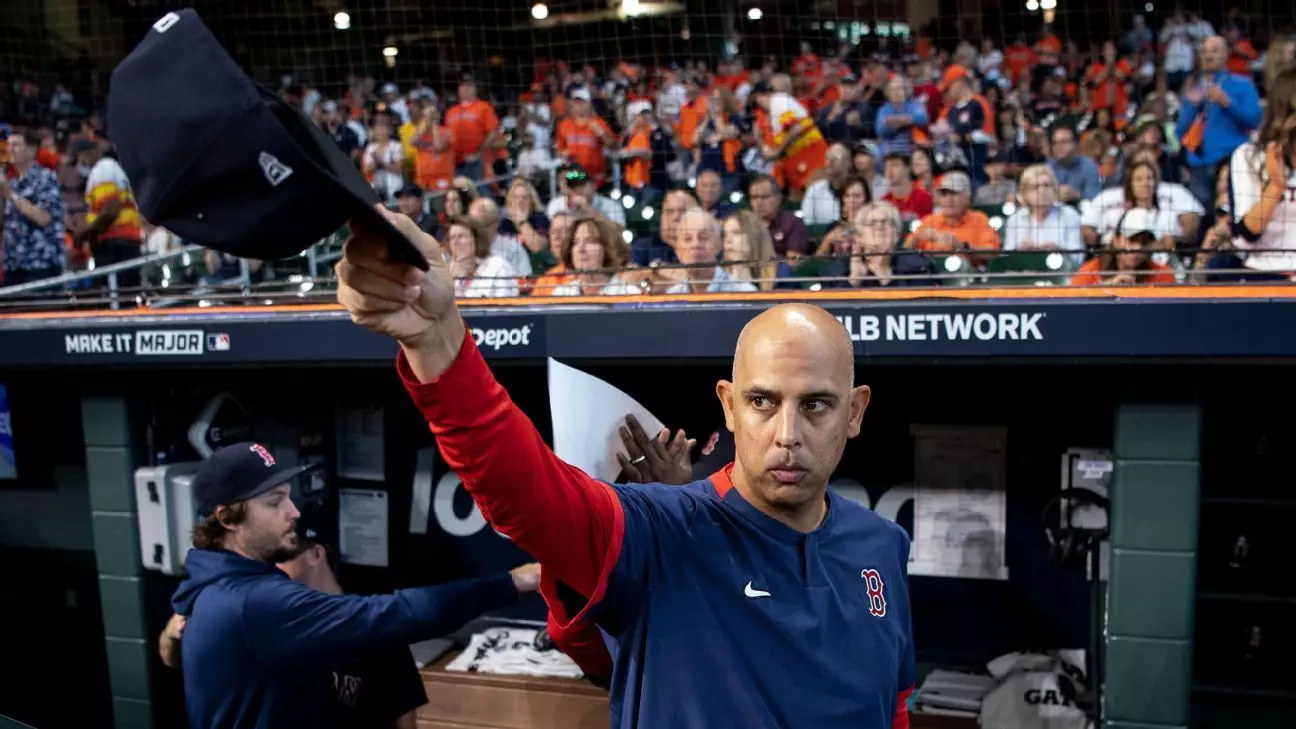In recent discussions, Boston Red Sox manager Alex Cora has expressed newfound admiration for the sport of soccer, particularly after experiencing the electrifying atmosphere of a match at Anfield. His visit during a pivotal game between Liverpool and Manchester City provided him with a lens to analyze the daunting challenges inherent in professional soccer. Cora’s comments highlight a stark contrast between Major League Baseball (MLB) and soccer, especially when it comes to the relentless pace of the game’s schedule—a topic increasingly drawing attention as player welfare comes into sharper focus.
Cora’s embrace of soccer began in 2019 but has rapidly evolved into a deeper understanding of its intricacies. As he articulated, the Premier League’s battle for positioning, where even a fourth-place finish is celebrated as a triumph due to its qualification for the Champions League, starkly contrasts with the traditional expectations within MLB. From his perspective, the stakes are high in soccer; each game carries weight and significance, regardless of standings. This notion is particularly acute amid a climate where relegation looms ominously for struggling teams, further fueling the passion and urgency each match represents.
Fixture Overload: A Growing Concern
As we venture into the 2024-2025 soccer season, we are met with a narrative of extreme fixture congestion. This season promises to be the longest on record, partly due to FIFA’s decision to host the Club World Cup in the U.S. during summer months when players typically enjoy a respite. Notably, prominent players, including Rodri and Erling Haaland, have voiced grievances regarding an increasingly congested schedule that leaves scant room for recovery. With injuries mounting across elite clubs like Arsenal and Real Madrid, it becomes clear that the current approach to scheduling necessitates urgent scrutiny.
Cora himself found this comparison particularly enlightening after a conversation with Liverpool captain Virgil van Dijk. Cora’s recounting of their exchange underscores an intersection of respect and disbelief; soccer players compete not only in endless domestic league battles but also in international engagements that extend the toll on their bodies over a lengthy eight- to ten-month span. It begs the question: at what point do the competitive demands become counterproductive to player longevity?
The Comparable Grinds of Baseball and Soccer
When Cora discussed the MLB’s grueling 162-game season, he brought to light a crucial connection: both leagues are inherently about endurance and mental fortitude. While Major League Baseball players embark on a marathon-type endeavor, soccer players are entangled in a relentless sprint with nearly simultaneous tournaments demanding their attention. Each has unique challenges, but Cora asserts there’s a shared weariness in both sports, a grind that undoubtedly requires robust mental and physical resilience.
Adding to the complexity is the ongoing conversation amongst soccer managers, such as Barcelona’s Hansi Flick, imploring governing bodies to reconsider match scheduling. Flick emphasized player recovery as a crucial aspect that deserves attention, arguing for essential rest periods. His remarks echo sentiments shared by many regarding the need for holistic player welfare across leagues and competitions. If player health suffers as a consequence of overly ambitious schedules, the sport’s integrity could very well be at stake.
The Commercial Implications and Ethical Dilemmas
Moreover, as the commercial motivations of leagues create conflict with player welfare, Cora’s observations bring to the forefront a critical ethical dilemma within professional sports. FIFA’s statements regarding the scheduling practices of some leagues highlight a business model that appears to prioritize revenue over the well-being of athletes. This ongoing tension raises important questions about the future of both soccer and baseball: Can the entertainment value of sport remain intact if the athletes are physically compromised?
Equally alarming is the impending landscape of esports and media rights, where audiences demand more content and entertainment at increasingly rapid rates. However, the emphasis on quantity over quality could undermine the very essence that defines sportsmanship. As mentioned humorously during the Men in Blazers podcast, should the expectation evolve into a grueling series of 162-game seasons played weekly? Such casual jokes may mask an unsettling reality—one that both players and fans must confront moving forward.
While Cora acknowledges the heavy toll of constant competition, it’s abundantly clear that deeper discussions regarding player welfare and the ethics of sport scheduling are needed. As both leagues navigate their demanding terrains, the hope is that solidarity among clubs, players, and governing bodies will yield a more sustainable approach to scheduling—one that honors the athletes and the integrity of the game.

